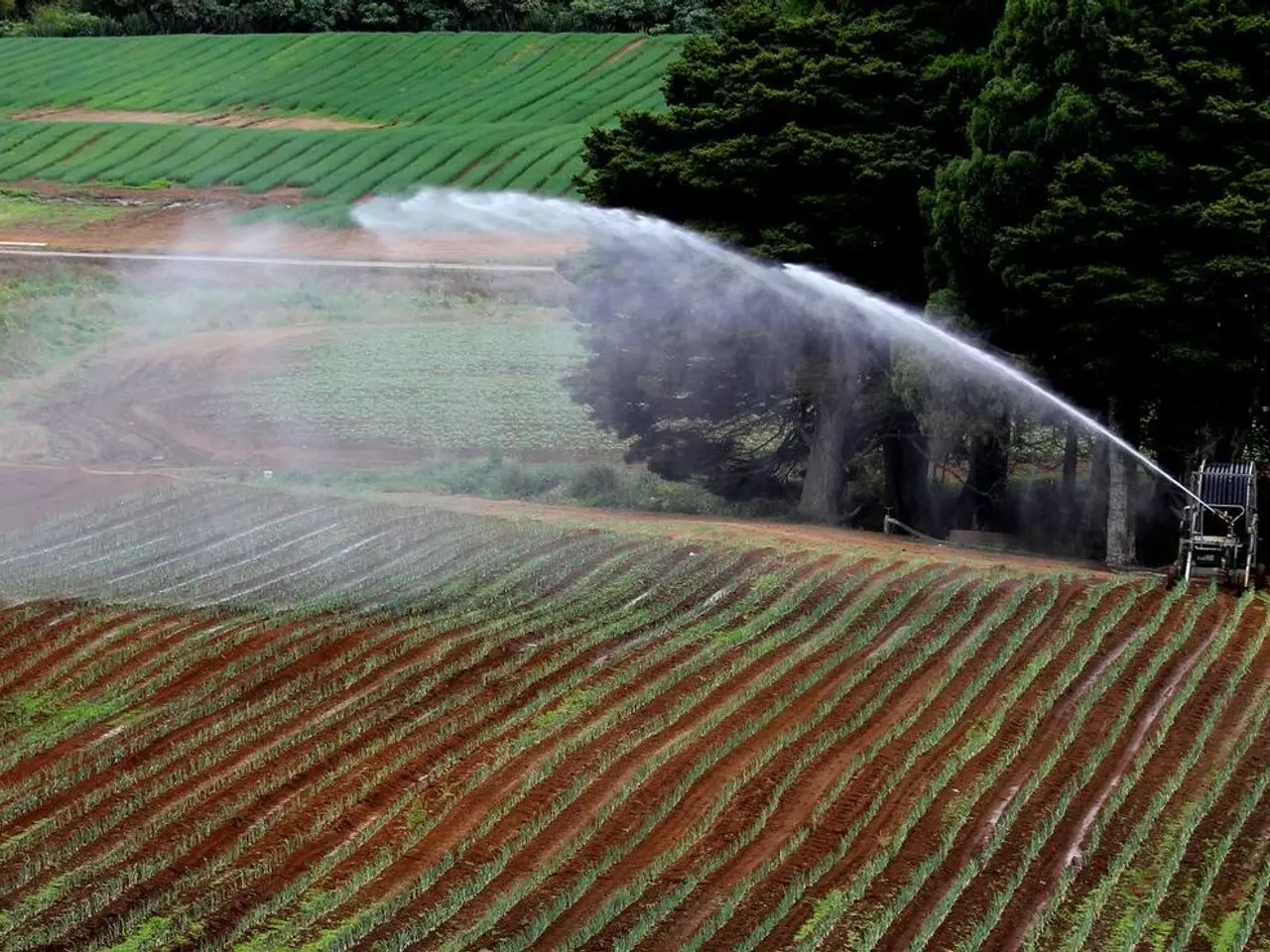Regenerative agriculture sector receives $78 million investment, linking Wall Street to farming innovations
In a significant move for the regenerative agriculture sector, Mad Capital has announced the conceptualization of its third fund, Fund III. This semi-liquid, evergreen fund aims to scale into a vehicle exceeding $500 million, attracting institutional investors seeking impact-oriented returns and independent yield.
The growing interest in investment opportunities in the regenerative agriculture space is evident, with more family offices, foundations, and individuals considering it as an asset class. Mad Capital's track record and unique loan origination capabilities have caught the attention of numerous investors.
Mad Capital provides access to capital for smaller farming operations that might not be able to secure a bank loan, a gap historically filled by traditional lending designed for conventional, large-scale farms. As a private credit firm, Mad Capital can equip farms with a customized financing package to help them during and after the transition to regenerative-organic farming practices.
The momentum behind Mad Capital's latest fund is driven by an uptick in interest in the food system that's grown since around 2020. This increased awareness has led to additional investment for the Perennial Fund II (PFII), which Mad Capital has recently closed at $78.4 million.
The PFII brings Mad Capital's total assets under management (AUM) to $100 million, more than 7 times the size of Mad Capital's previous fund, which closed in 2021 at $10 million. Early commitments for the PFII came from The Rockefeller Foundation, Builders Vision, and the Schmidt Family Foundation.
Investors are rotating into more defensive positions, and one way they are doing this is by getting access to private credit, especially private credit in an uncorrelated asset class like regenerative agriculture. Valuations have been increasing rapidly since 2009, and investors are trying to capture some of those gains and secure the gains they have achieved over the last decade.
Mad Capital's success is evident in its ability to continue scaling a high-performing portfolio while maintaining a $0% loss rate as a company thus far. The goal of Fund III is to provide impact-forward and uncorrelated yield, making it an attractive option for investors looking for a defensive position in their portfolios.
As Mad Capital moves forward with the development of Fund III, it continues to break new ground in the regenerative agriculture sector, offering a promising future for sustainable farming practices and impact-driven investments.




